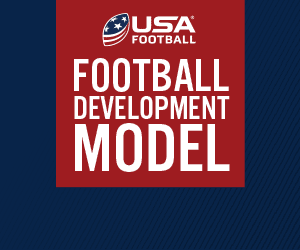Learning from a legend
- Sam Wilson, Olean Times Herald
- Sep 1, 2019
- 5 min read
New Coaches at Salamanca, F/E, A-L recall how Whitcher shaped their football lives
Decades after his graduation from Salamanca High School, Jason Marsh still had something to learn from George Whitcher when it came to football.
Marsh, early in his tenure as Salamanca’s varsity football coach in the mid-2000s, replacing Rich Morton — a former Whitcher assistant — found himself looking for answers about preparing for a sectional playoff opponent. So Marsh, a 1991 SHS graduate, and his then-assistant, Chad Bartoszek, a 1999 Salamanca grad, paid Whitcher a visit.
“We were talking to him about 'How are we going to stop this offense,' and this and that,” Marsh said, recalling his visit with Whitcher. “George gave us probably an hour after practice one day, and everything he was saying was something that Chad and I had never even thought of and we both looked at each other and said, 'Wow.' He just has so much knowledge. He was just a student of the game, put so much time into it.
“He was always prepared, and that was some of the things I remember, how much time he put into preparing for games. His film work was unreal. We never went into a game — at least in my playing days — that George coached that we were unprepared, not once.”
Whitcher coached the Warriors from 1974-98, winning 167 games and seven Section 6 championships. And while the Warriors’ coaching legend stepped away from Salamanca 21 years ago, his influence on high school football coaching continues to this day, and not just on the sidelines of Salamanca’s Veterans Memorial Park.
This season, three of the coaches taking new jobs in the Big 30, all in Cattaraugus County, share a connection to the heyday of Salamanca football. All three played for Whitcher.

Bartoszek returns to his hometown to lead the Warriors after six seasons in Ellicottville (five with the merged Franklinville/Ellicottville Titans). Marsh, the Warriors’ former head coach and a former F/E assistant, replaces Bartoszek as the Titans’ head coach. Tom Callen, a 1994 SHS grad, is the new head coach leading the Allegany-Limestone Gators.
WHAT WAS IT about the Whitcher era that resulted in a decade-spanning, ever-growing coaching tree?
“It would be hard to speak for everyone else,” Bartoszek said of his fellow SHS graduate coaches. “I imagine having successful seasons back-to-back, over-and-over, the commitment to the football program community-wide was so strong that's going to inspire young players, young athletes, young adults to want to replicate that or they want to maybe replicate the game of football and enjoy the time they had. When I look back at my playing years, I think about the dedication, the commitment, but also the fun that we had. Those moments were inspiring not only to want to be around the game of football, but to work with kids in education in general.
“So speaking for myself, it's pretty simple that I love the game of football and we had a great mentor and a great run of football years. It was easy to become inspired by my coaches, so I'm assuming that that's played a similar effect in there's a lot of former Salamanca football players who are out there currently coaching.”
Of the eight assistants or JV coaches on Salamanca’s staff, six played football at the school, most of them for Whitcher: Paul Furlong, Paul Haley, Aaron Hill, Dustin Ross, Ray Haley and Seth Hostuttler. Only Jerry Parisi (Newfane) and Travis Happoldt (Ellicottville) grew up at other schools.
“Seven of the nine are former (Salamanca) players of George, and Aaron Hill was a little younger but he was still around it most of his life and his dad played,” Bartoszek said. “So I think what Salamanca football meant to everyone, the community creates a bond and you want to support what helped you become successful. Everyone's got their own path and reasons for becoming involved in education and athletics, and mine was based off of some of those high school years, for sure.”
Bartoszek’s senior year coincided with Whitcher’s final year coaching the Warriors. Long before then, Whitcher had earned a “fierce respect” from his players, Bartoszek said.
“He had done so much, and we were to the point then where we didn't want to let him, let former players, let our coaches down,” Bartoszek recalled.
Now, from his perspective as a seventh-year head coach approaching his first leading the Warriors, Bartoszek marvels at Whitcher’s preparation work.
“As a player, I remember looking up to him as such an elevated figure in the football community,” Bartoszek said. “Now as a coach, I’m just amazed at how far ahead of the game he was in terms of his preparation, his practice prep, his execution. He had it going on for so long that we kind of took it for granted. Now that I'm doing it myself, it's like, 'Holy cow.' It's not easy to get a well-oiled machine going. It takes a lot of work and he had it going on. As a coach, I appreciate that.”
MARSH RECALLS his playing days as a “great time in my life,” and credits that to the success he and his teammates had under Whitcher.
“We had a lot of success playing for George, and he really taught us a lot about how to be young men,” he said. “He demanded that we be disciplined, and I think he taught us a lot of lessons that we used on the football field but they also translated into giving us success in what we do with the rest of our lives. He taught us how to be disciplined, how to be a good teammate, how to be responsible and accountable. And he taught us how to persevere. A lot of those lessons I use on a daily basis.”
But deciding he wanted to coach the game didn’t come until a decade after his high school graduation.
“When I graduated high school, I don't think I went, 'Hey, I want to be a high school football coach someday,'” Marsh said. “But when the opportunity presented itself back in 2001 when Rich Morton asked me to be a part of the coaching staff, I didn't know if I was cut out for it. I just know that I had a love for football. So definitely, George had a great influence on me as a coach. Then from there, I just kind of fell in love with coaching. I know that we all really had a lot of respect for George because of the lessons he taught us.”
Marsh said he models principles like accountability and responsibility based on what Whitcher taught him. While his coaching style may have adjusted to the times, “those things all apply.”
“George was tough, but he was fair,” Marsh said. “If you messed up, you knew you messed up. And if you did a good job and played well, he let you know you played well. He was fair. He taught us toughness, and that's the one thing that … we play a physical and violent sport and sometimes there aren't nice ways to teach it and George taught us how to be tough.





















































Comments